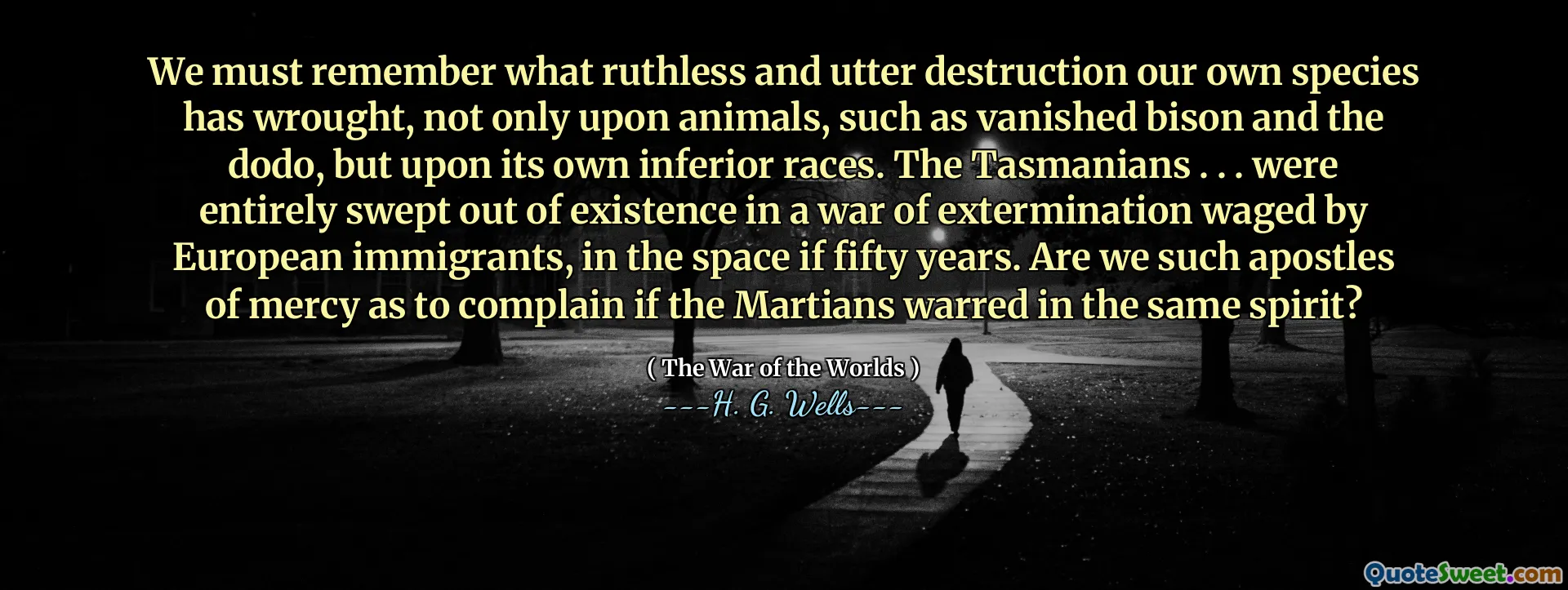
We must remember what ruthless and utter destruction our own species has wrought, not only upon animals, such as vanished bison and the dodo, but upon its own inferior races. The Tasmanians . . . were entirely swept out of existence in a war of extermination waged by European immigrants, in the space if fifty years. Are we such apostles of mercy as to complain if the Martians warred in the same spirit?
In H.G. Wells' "The War of the Worlds," the author reflects on the destructive capabilities of humanity throughout history, highlighting the devastating impact on various species and oppressed groups. He points to the extinction of animals like the bison and the dodo and emphasizes the tragic fate of the Tasmanians, who were exterminated over fifty years due to European colonization. This historical perspective reveals a grim reality about human nature and its capacity for violence against both nature and marginalized populations.
Wells provocatively questions our moral standing when we express outrage at potential violence from Martians, given our own brutal history of extermination and domination. He challenges the notion that humans are inherently merciful, suggesting that if we have committed such atrocities, we should not be surprised or indignant if others, such as Martians, replicate our destructive behaviors. This dilemma invites deeper reflection on humanity's ethical culpability and the consequences of our actions throughout time.











